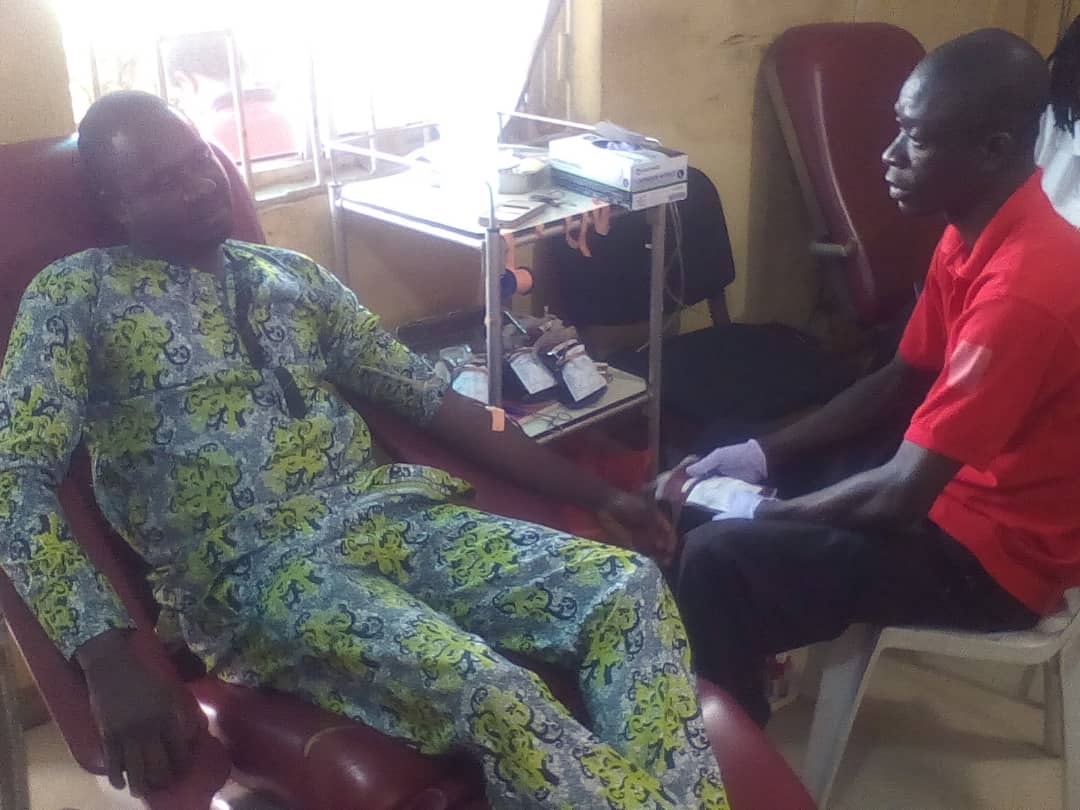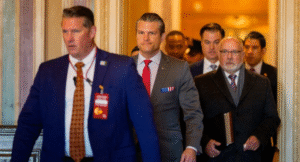To celebrate this year’s world blood donor day, the National Blood Transfusion Service (NBTS) has made it known that donating blood regularly will reduce the risk of getting the deadly disease called cancer.
This statement was made by Mr. Akinbola Idowu, assistant zonal coordinator of NBTS while addressing journalists today 14th June at the event organised by the organisation to mark this year’s world blood donor day.
” There are so many advantages of donating blood. It makes you to know your health status, because we have to do a cross examination of each blood donor to know if they are fit to donate blood or not. Donating blood regularly will also reduce the risk of getting the dreaded disease cancer because when blood is donated regularly, the heart produces a fresh blood which will be supplied to every part of the body.”
Akinbola further said that the Federal government has subsidized the price of a unit of blood in the center with the aim of making blood to be available and affordable.
“Ibadan is the only city in Nigeria where you can get blood unit at very cheap price, naturally in here we sell a unit of blood at the rate of five thousand naira, and also you can still get same unit of blood at other outlets here in Ibadan between the range of fifteen to ten thousand naira, but you can hardly get blood of the same unit at the same price in places like Lagos and other states, I learnt they sell a unit of blood in Lagos for as huge as thirty thousand and even more than that. NBTS blood is save for the ailing person to use as the blood we give out here is save and secured with the series of tests it might have passed through.” He said
Also at the event the highest blood donor Mr. Olumide Wilson who has donated blood for the centre for about fifty consecutive times since the year 2007.
Mr. Wilson who spoke with Journalists shortly after donating a pint of blood to the center said that todays donation will make it a fifty donation of my blood to the center since I have started since 2007.
“today I came all the way from Abuja where I work to donate blood here in Ibadan, I do this often, like every three months interval, this also gives me the opportunity to check my medical status, as I cannot donate blood here without them checking my status of health, and if am okay to donate then they will ask me to go ahead but if am not medically fit they will tell me and they will advice me not to, and also I use the period to check on my family members before I go back to Abuja, like tomorrow morning I will be heading back to Abuja.
” Blood donation is good, it saves lives and also give you the opportunity to know your health status, I urged our youths to also embrace the act of blood donating it can save even then lives of the loved ones.”Wilson said.
Earlier in her speech the acting zonal coordinator of National Blood Transfusion Service Mrs. Mojisola Victoria Adeleke said the NBTS has the mandate to provide safe, quality and adequate blood in an equitable and cost effective manner to all people resident in Nigeria; an enormous task which it execute through a network of seventeen centers spread across the six geopolitical zones of the federation including the Federal Capital Territory.
“Our limited national data indicate that voluntary non remunerated blood donation account for only 10% of our total blood collection. Family replacement donations and commercial donation account for 30 and 60 percent respectively, this situation should be reversed as we move towards the attainment of 100% voluntary non remunerated blood donation by the year 2020.
” Globally, about 108 million units of blood are utilized per annum, with a population of over 180 million, the estimated blood need in Nigeria is about 1.8 million units of blood per annum, unfortunately less is donated leading to avoidable deaths and morbidities particularly among women folks, new born children, victims of road traffic accidents and insurgencies. This situation can improve if up to 1% of our country’s adult population commit themselves to voluntary non remunerated blood donation on a regular basis.” Adeleke explained.
Reported by Abimbola Emmanuel, Ibadan









